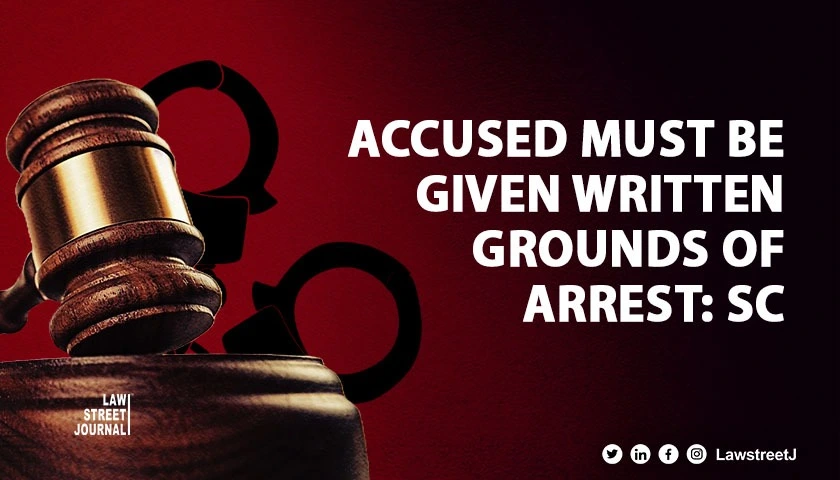NEW DELHI: The Supreme Court has held any person arrested for allegation of commission of offences under the provisions of Unlawful Activities Prevention Act or for that matter any other offence has a fundamental and a statutory right to be informed about the grounds of arrest in writing.
The top court said a copy of such written grounds of arrest have to be furnished to the arrested person as a matter of course and without exception at the earliest.
A bench of Justices B R Gavai and Sandeep Mehta broadened the scope of October 3, 2023 judgement in Pankaj Bansal case -- which made it mandatory for the Enforcement Directorate to disclose the grounds of arrest in writing to the accused in Prevention of Money Laundering Act -- to the anti terror law, the Unlawful Activities Prevention Act or any other offences in other penal provision.
The court said Articles 22(1) (no person to be arrested without informing grounds) and 22(5) (to be informed of grounds of detention) of the Constitution is sacrosanct and cannot be breached under any situation.
"There is no doubt in the mind of the court that any person arrested for allegation of commission of offences under the provisions of UAPA or for that matter any other offence(s) has a fundamental and a statutory right to be informed about the grounds of arrest in writing and a copy of such written grounds of arrest have to be furnished to the arrested person as a matter of course and without exception at the earliest," the bench said.
In its judgement in case of Newsclick's Prabir Purkayastha, the court rejected a fervent plea by Additional Solicitor General S V Raju that there was no requirement under law to communicate the grounds of arrest in writing to the accused appellant, arrested under the UAPA for furthering pro Chinese propaganda in lieu of huge sums of money.
The bench said, "We have no hesitation in holding that the interpretation of statutory mandate laid down by this court in the case of Pankaj Bansal on the aspect of informing the arrested person the grounds of arrest in writing has to be applied pari passu to a person arrested in a case registered under the provisions of the UAPA."
The court said the purpose of informing to the arrested person the grounds of arrest is salutary and sacrosanct inasmuch as, this information would be the only effective means for the arrested person to consult his advocate; oppose the police custody remand and to seek bail.
"Any other interpretation would tantamount to diluting the sanctity of the fundamental right guaranteed under Article 22(1) of the Constitution of India," the bench said.
The court also said the Right to Life and Personal Liberty is the most sacrosanct fundamental right guaranteed under Articles 20, 21 and 22 of the Constitution of India. Any attempt to encroach upon this fundamental right has been frowned upon by this Court in a catena of decisions.
The court said any attempt to violate such fundamental right, guaranteed by Articles, 20, 21 and 22 of the Constitution of India, would have to be dealt with strictly.
"We are of the firm opinion that once this court has interpreted the provisions of the statute in context to the constitutional scheme and has laid down that the grounds of arrest have to be conveyed to the accused in writing expeditiously, the said ratio becomes the law of the land binding on all the Courts in the country by virtue of Article 141 of the Constitution of India," the bench said.
The court also held the grounds of arrest would invariably be personal to the accused and cannot be equated with the reasons of arrest which are general in nature.















